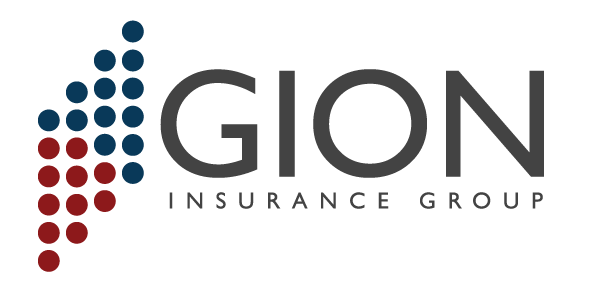What do you mean by “Bonding Solutions” and what are Bonds?
We use the words “bonding solutions” to refer to helping our clients with any type of bond need they
may have. The word “bond” can be used to refer to a lot of different things, as there are several kinds of
bonds that a consumer may buy. You may see a business say that they are “bonded” and this could
mean something as simple as the fact that the business purchased a “license bond” as required by law
to operate in the city. But it could also mean that the business purchased specific crime insurance to
protect the consumer. Saying “bond” is not good enough.
Most bonds are used as financial instruments to guarantee a result. Please see below for a listing of the
most common types of bonds that are needed, what they do, and why they are needed.
Why are Bonds Important?
There are four significant reasons this coverage is important.
- First, bonds exist to meet a specific need not met by other forms of insurance. Many times,
bonds can free up what would otherwise be required cash on hand. - In virtually every case, creditworthiness and the ability to do what a business says it will do are
the determining factors to if a business can get a bond. So, bonds can be used by others to
determine if they should do business with another entity. - Bonds protect financial investment and can hold businesses accountable.
- Some businesses can’t operate without the use of bonds. And Federal Law requires bonds in
some situations (like for protection of Employee Benefit Plans).
- First, bonds exist to meet a specific need not met by other forms of insurance. Many times,
What are the most common types of bonds and what do they do?
Glad you asked! The following are the most common types of bonds we issue. Ultimately, the type(s) of
bond(s) you need will be based specifically on what your business does. This list is only a starting point:
- License Bonds: As you would expect, these bonds are issued so that businesses can get a license
in a specific location. Basically, they are protecting the municipality should the business fail to
do what it is supposed to do. - Payment & Performance Bonds: Payment and Performance Bonds (usually referred to as P&P
Bonds) are actually two different types of bonds but are sold and issued together 90% or more
of the time. Ultimately, they provide assurance to a purchaser of goods or services that
whatever has been contractually agreed to will be done and that the purchaser will not be hurt
should something go wrong with how the contractor or provider of goods and services does
their job. Payment and Performance bonds are very often required on government jobs to
protect taxpayers. But they are often required by many businesses and individuals with a lot to
lose if the job is not completed on time and within budget. In a P&P bond, the purchaser of
goods and services is guaranteed to receive the amount of the bond from the surety (insurer
providing the bond) should the contract not be properly fulfilled. If that were to happen, the
surety would then go after the provider of services (and usually its owners' individual finances)
to recoup what they paid. - Bid Bonds: Bid Bonds are used to verify that should a business or contractor offer a bid for a job
or project, they will be able to purchase a Payment and Performance Bond to protect the
purchaser of services. Often, they are used as a qualifying tool for parties that might be bidding.
The reason these bonds are used is that there could be substantial loss and problems if one
party is awarded a job, only to not be able to execute that job. At that point, the other bidders
might need to substantially increase prices or may not be able to re-bid altogether. - Employee Dishonesty Bonds: Employee Dishonesty Bonds are really a form of Crime coverage.
There are a variety of ways these bonds can be issued to protect either a business, third parties
(like consumers/customers), and employees themselves. For example, a common type of
Employee Dishonesty Bond is an ERISA Bond. ERISA stands for the Employee Retirement Income
Security Act of 1974, which is a federal law that seeks to protect Employee Benefit Plans of
those that work for companies. The law requires, among other things, that the funds in defined
benefits plans are insured to protect the employees' investments from dishonesty that could
rob them of their retirement security. - Notary Bonds: Notary Bonds are kind of a subset of license bonds. They are used to protect
those who would otherwise be wronged by the dishonesty of a notary. These bonds are typically
required for an individual to become a notary.
- License Bonds: As you would expect, these bonds are issued so that businesses can get a license
How Our Team Can Help:
Our experienced team of insurance professionals is here to guide you in determining your needs and finding the appropriate solution. We do this in several ways:
- Tailored Solutions: We understand that every client/situation is unique. Our team will work
closely with you to customize an insurance plan that meets your specific needs and budget. - Risk Assessment: We will conduct a thorough risk assessment of your operations or ownership
interests to identify potential hazards and recommend appropriate coverage options. - Claims Assistance: In the event of a claim, our dedicated claims specialists will assist you
throughout the claims process, ensuring a smooth and hassle-free experience. - Expert Advice: With our in-depth knowledge of the insurance market, we can provide expert
advice and guidance to help you make informed decisions about your insurance coverage.
- Tailored Solutions: We understand that every client/situation is unique. Our team will work
Get Started Today!
Protect your investment and minimize financial risks with Business and Professional Insurance. Contact
our team today to learn more about our insurance solutions and how we can help safeguard your
ownership or business interests.

